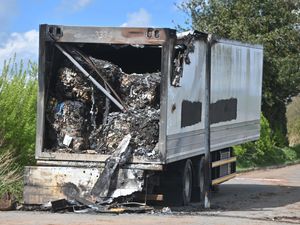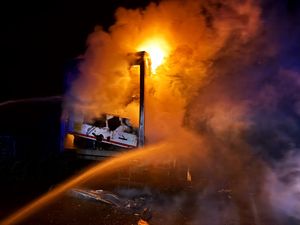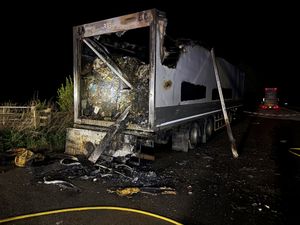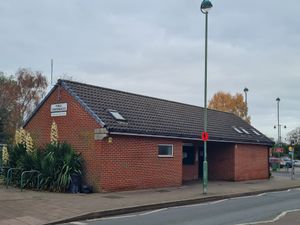Royal Irish Regiment soldiers honoured for actions on tour
Five heroic soldiers based at a Shropshire barracks have received medals recognising their bravery during a six-month tour of duty in Afghanistan.
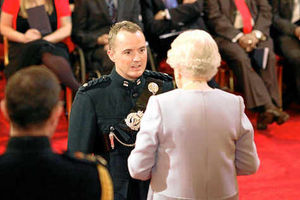

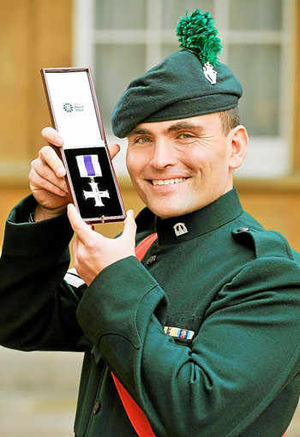
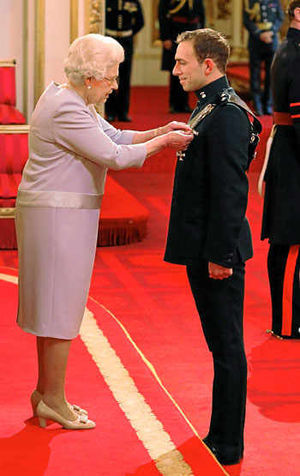
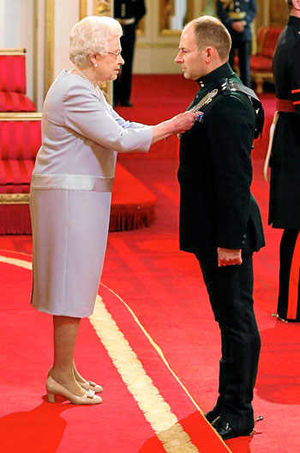
Five heroic soldiers based at a Shropshire barracks have received medals recognising their bravery during a six-month tour of duty in Afghanistan.
Their regiment came under daily attack from insurgents during the tour of duty.
One officer used himself as a human shield to save one of his men after a Taliban grenade landed almost at his feet.
See more pictures in our gallery to your right
Another led a daring night patrol to link up with half of his soldiers who had been isolated for almost two months during a vicious battle in one of the most violent parts of Helmand.
The soldiers, all members of the 1st Battalion, the Royal Irish Regiment – based at Clive Barracks at Tern Hill, near Market Drayton – were presented with awards for 'outstanding bravery and performance' during a ceremony at Buckingham Palace.
They arise from an operational tour in Helmand Province from October 2010 to March this year during a period of intense insurgent activity, in which every move of the 1,000-strong Royal Irish battlegroup was bitterly contested by the Taliban, and some troops were under fire several times a day.
During the three-month battle for Saidabad, 19 soldiers were killed or injured, and there were 46 bomb attacks and almost 400 firefights.
The battalion's commanding officer, Lieutenant Colonel Colin Weir, 40, from Portadown, received the Distinguished Service Order for his courage and leadership in a campaign of major offensive operations to sweep insurgents from the Zarghun Kalay and Saidabad areas.
The citation says: "Weir was everywhere; guiding, chivvying, supporting, always leading by example and personally frequently exposed to danger. He was involved in many small arms and grenade engagements, both in his vehicle, on foot and in the early days, inside bases.
"He was the ringmaster throughout, always inspirational, always clear minded.
"He embodied the counter-insurgency campaign in his area, and was personally responsible for the success that was achieved."
Lt Col Weir said: "The presentation of these awards is a humbling acknowledgement of the bravery and dedication of my officers and soldiers."
Major Jamie Humphreys, 37, of 'A' Company, who led his men into numerous engagements against a determined enemy, was awarded the MBE for his 'bravery, skill and determination' during the three month battle for Saidabad.
Major Humphreys, who hails from Dundonald, was in contact with the enemy almost daily, earning himself a reputation for attacking and holding ground until every enemy had withdrawn.
He also personally led an audacious night patrol to link up with half of his soldiers who had been isolated for almost two months in one of the toughest parts of Helmand.
"His successes proved to the cowed population that the Taliban were no longer in the ascendancy. As a result, stabilisation started to have an effect and exiled tribal elders, a vital piece of the social fabric, started to return," says the citation.
Sergeant Peter Keogh, 30, also of 'A' Company, was one of three men to receive the Military Cross after he led a patrol which overran seven Taliban positions in a single afternoon.
At one point Sergeant Keogh dashed 150 metres across open ground to link up with a second patrol which had become pinned down. He exchanged information and then returned over the same ground, still under fire.
He then again put himself in the enemy firing line to administer first aid, and deliberately drew fire to himself to allow wounded soldiers to be safely carried away.
His citation describes him as 'quiet, humble and resolute', and his actions as 'extraordinary' showing 'exceptional courage'.
Sergeant Keogh said: "Although some of us have been singled out, everyone did something spectacular on that tour. I will always think of those who didn't come back."
The Sergeant went on to play down his gallantry saying they had communication problems which meant he had ro run out to the other group of soldiers to speak to them, while under fire, then run back.
The 31-year-old soldier said he normally does not tell his family about the dangers he faces on operations.
Worry
He said: "I didn't tell them what was going on until I knew about the MC, then I had to tell them and my mother obviously wasn't very pleased.
"I don't go into details about what happens out there because they will just start to worry."
One of the most remarkable exploits was that of 28-year-old Lieutenant Paul McFarland, from Belfast, who received the Military Cross after diving on top of one of his men to shield him from shrapnel after a grenade was thrown over a wall. Luckily it landed in soft ground and there were no injuries.
"I'm not sure went through my mind. I heard a popping sound (the striking of the grenade's fuse), looked round, and saw the grenade.
"I just grabbed my friend, threw him and dived on top of him and a couple of the other lads. The grenade went off and sprayed shrapnel against the walls," he said.
"I'm proud of how I reacted but it was just instinctive. I started getting stick straight away. The lads were saying 'I bet you'll get an award for this,' but all of them saved my life on numerous occasions. We were always together, always a team."
The third winner of the Military Cross, Lance Corporal Ratu Qalitakivuna, asked for no publicity and consequently no details of his exploits have been released.


